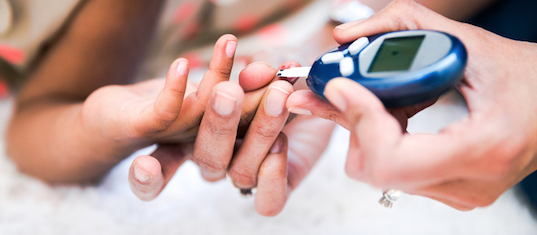Genetic variations and social health determinants may lead to higher risk for diabetes in individuals with high African heritage

Last Updated on March 10, 2022 by Joseph Gut – thasso
March 10, 2022 – In a new report distributed in “Circulation: Genomic and Precision”, scientists showed that as while numerous African Americans, particularly those with a high African Family extent, have a good lipid profile, they are at a higher gamble of creating diabetes than those of  White/European parentage. A great lipid profile demonstrates there are less parts of muscle versus fat that can prompt cardiovascular and metabolic infection. Specialists accept that this might be driven by hereditary elements related with geographic parentage.
White/European parentage. A great lipid profile demonstrates there are less parts of muscle versus fat that can prompt cardiovascular and metabolic infection. Specialists accept that this might be driven by hereditary elements related with geographic parentage.
This research demonstrates that there are explicit hereditary varieties that are more normal among those with higher African family line that incline these people toward diabetes. The research also points to a the higher degree of gamble of diabetes among non-Hispanic Black people to social determinants of wellbeing, including where individuals are conceived to, such as life, learning, work, and age.
Obviously, there is a higher degree of occurrence of diabetes among people of African descent. Notwithstanding, the predominance of a metabolic condition which is a bunch of diabetes-risk expanding factors, has to be noticed as somewhat “normal”. This is regularly depicted as a metabolic mystery. Through the  present review and study, specialists try to more readily comprehend the premise of this mystery and see whether geographic family location assumed a part in this disparity. They researched in excess of 9’000 American grown-up members of the Systolic Blood Pressure Intervention Trial (SPRINT) upheld by the National Heart, Lung, and Blood Institute. They observed that individuals of African heritage had a higher rate of creating diabetes in spite of having an ideal lipid profile. This confusing relationship is related with European hereditary parentage.
present review and study, specialists try to more readily comprehend the premise of this mystery and see whether geographic family location assumed a part in this disparity. They researched in excess of 9’000 American grown-up members of the Systolic Blood Pressure Intervention Trial (SPRINT) upheld by the National Heart, Lung, and Blood Institute. They observed that individuals of African heritage had a higher rate of creating diabetes in spite of having an ideal lipid profile. This confusing relationship is related with European hereditary parentage.
The researchers additionally observed that a higher mainland European hereditary family line among self-distinguished Black grown-ups was related with a lower chance of suffering from diabetes, even in the wake of representing the distinctions in the social determinants of wellbeing. This suggests that the hereditary determinants overseeing the higher occurrence of diabetes among Black people are not yet completely comprehended.
While both organic and social variables seem to add to the higher risk of diabetes among Black people, the overall commitment is challenging to clarify at an individual level.  Established research has generally been weak in including Black people into genomic research, which has restricted how we might interpret the hereditary determinants of metabolic wellbeing in Black people. However, certain individuals convey normally happening varieties in their DNA that might add to a higher risk of creating diabetes. In any case, bigger, even worldwide research efforts to include customarily underrepresented patient networks for genomic medication examination can assist with resolving this issue.
Established research has generally been weak in including Black people into genomic research, which has restricted how we might interpret the hereditary determinants of metabolic wellbeing in Black people. However, certain individuals convey normally happening varieties in their DNA that might add to a higher risk of creating diabetes. In any case, bigger, even worldwide research efforts to include customarily underrepresented patient networks for genomic medication examination can assist with resolving this issue.
See here a sequence on this problem:

